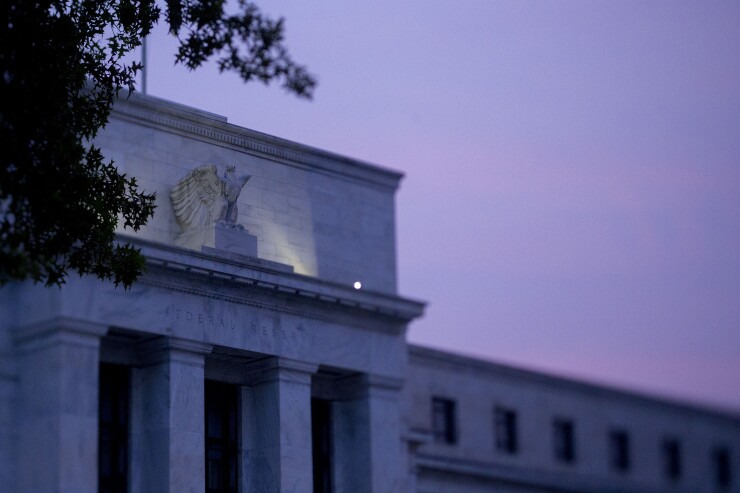
Last Friday, a federal judge issued a much-anticipated
It's worth taking a moment to understand what a master account is and why someone would want one. A master account — to quote the judge's ruling — is "a bank account for banks." That account allows banks to deposit funds with the Fed — earning interest at the federal funds rate, which is a
Spoiler alert: The judge sided with the Fed. The journey of how exactly the judge sided with the Fed involves spelunking deep into the recesses of the Federal Reserve Act and its myriad amendments, but the gist of it is this: The Fed holds the cards. If it wants to take your deposits and offer you services, it has to offer them the same for everybody in the club. But the Fed is the bouncer in front of the velvet rope, and it can let you in or not.
At least that's how it stands for now. The ruling relies on a reasonable interpretation of the relevant statutes, which suggest — but don't explicitly state — that master account access is granted at the discretion of Federal Reserve banks. That is based in part on language in the FRA that says the Fed "may" take deposits from eligible banks (as opposed to "shall") and a 2023 amendment offered by then-Sen. Patrick Toomey requiring the Fed to publish a database of banks that have master accounts (or access to one), those who have applied for an account, those who have been denied an account and those whose applications have been withdrawn. In other words, the statute is more supportive of a discretionary rather than compulsory framework, but it's fuzzy either way.
If — but, let's be real, when — the ruling is appealed, it will join a handful of other lawsuits asking a lot of the same questions. The Narrow Bank — the
In order to preserve its discretion, then, it would be incumbent on the Fed to articulate exactly what criteria it is using to decide whether an applicant can be granted access. The Fed has to replace the velvet rope with a fence.
There are good reasons why the Fed has been reluctant to do that. For one, if you build a fence, applicants can build a ladder — by articulating what an applicant has to do, applicants can find some way to satisfy those minimum requirements while preserving their goals of banking crypto or undermining banks' favorable interest rates or whatever other disruption they seek in the banking world. Keeping those requirements vague or case-by-case keeps the cards in the Fed's hands.
It also makes those case-by-case decisions somewhat arbitrary, and that's something that both the judicial and legislative branches don't look upon kindly. To be sure, the Fed has articulated a kind of proto-fence in its
So if the Fed's objection to Custodia is that crypto is volatile and dangerous, then it should say so — and apply that logic to
Drawing those lines will be difficult and would likely require an articulation of policy that goes beyond the Fed's specific remit — if we're barring crypto from banking, it may mean






